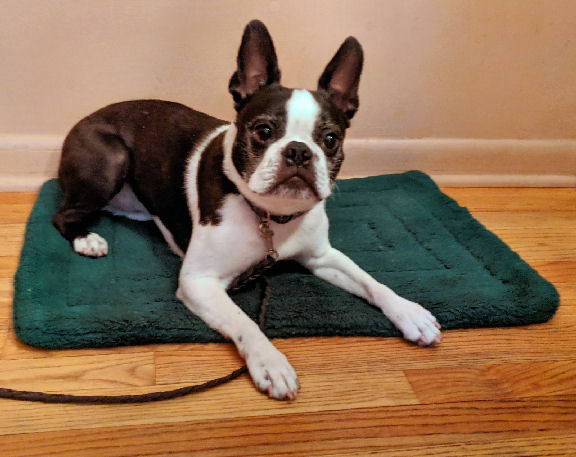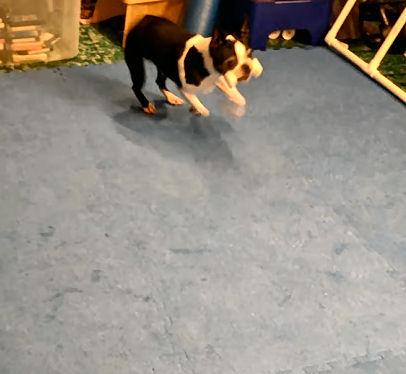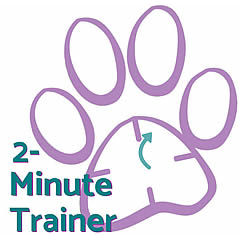
Have we told you that Fran’s 7-year-old Boston Terrier is a very “special” dog? He has difficulty focusing, he has the attention span of a gnat, he constantly needs attention – he just never seems to completely relax.
High energy is a characteristic of Boston Terriers. So we knew what we were getting into. We’ve had Bostons most of our lives, starting with our childhood pet, Spunky.
Another special dog
Our last Boston before Booker was Ceilidh, who was a very special dog, indeed. She had only two speeds, full or off. She was, possibly, the sweetest girl ever, but her life had to be strictly scheduled, or she was lost.
Since Booker wasn’t as extreme as Ceilidh, we didn’t realize, until Simon joined the family, that Booker, too, was a special dog.
Facing facts makes life easier
Once we understood what was going on with Booker, we made changes to make everyone’s life easier.
All dogs love routine. But special, high-energy, high-anxiety dogs crave it. They can thrive when they know what to expect, when to expect it, and what’s happening.
Thriving with routine
It’s to Fran’s credit that she never gives up with Booker. He’s accomplished amazing things, in light of his personality. He achieved a Companion Dog title – the first level of competition obedience. The hardest thing for Booker was, at the time, sitting for one minute, lying down for three minutes, in a line-up of other dogs and Fran across the room.
Every dog does better with routine. And a routine can be any rehearsed schedule, from what time to get up in the morning, to what you say and do in the few minutes before you leave the house.
Best part of the day
For Booker, the routine he enjoys the most is his morning training session. It’s only a few minutes, but it makes his day. He dashes down to the basement where we train, and waits on the mat in our little training area.

What Fran and Booker practice for those few minutes can be anything – from advanced obedience or rally skills to “put your toys away,” to silly tricks, like crawl or roll over.
And when his session is done, Fran asks him to “hup!” She kneels and he stands on two back feet and puts his front paws on her leg. He gets a reward, and happily goes into his crate while the other dogs each get a “turn.”
If you have a special pup, try adding more structure to his/her life. It can make it easier for everyone.






